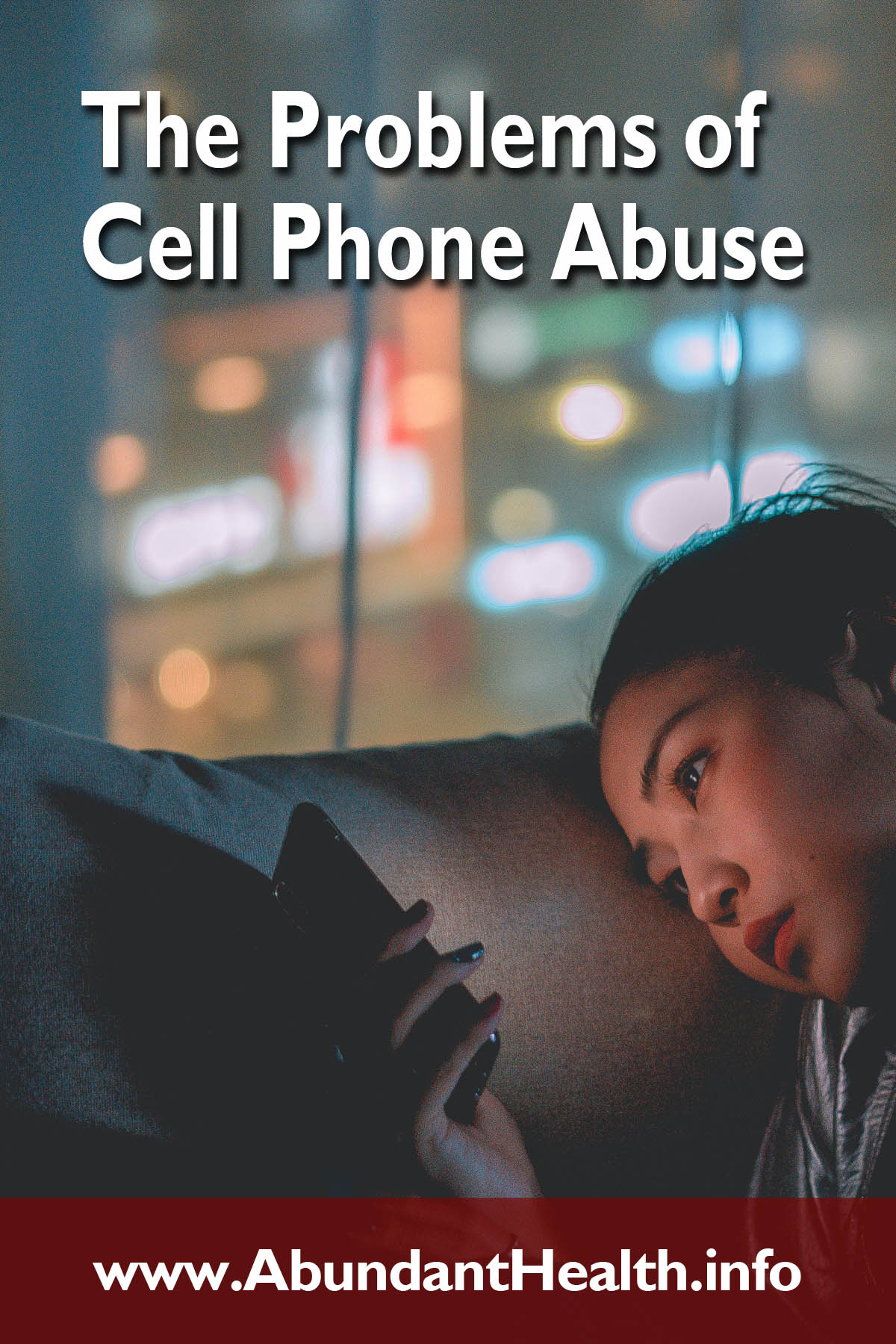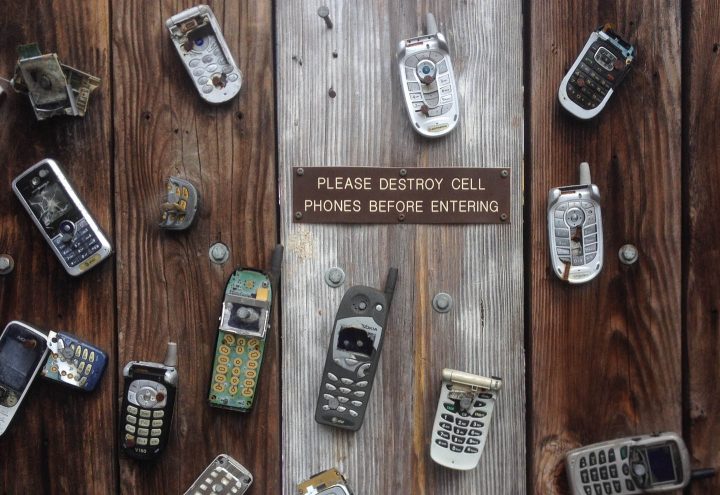On January 17, 2020, the famous American newspaper New York Times published an article in which the author claimed that parents shouldn’t worry about how much time their children spend using technology, such as cell phones, tablets and computers.1)Popper N. Panicking About Your Kids’ Phones? New Research Says Don’t. The New York Times, Jan. 17, 2020 That’s because, at least according to some experts, too much screen time is not related to their health and well-being. Really?

The other day, I was reading a quote by someone who said that often the only thing that’s true in a newspaper is the date. Let’s take a look at this to see if it really makes sense, which was published in the New York Times, being evaluated by Dr. Jean Twenge, who is a professor of psychology at San Diego State University in California, United States, and author of a book called “iGen: Why Today’s Super-Connected Kids Are Growing Up Less Rebellious, More Tolerant, Less Happy – and Completely Unprepared for Adulthood.” 2)Twenge J. Why Today’s Super-Connected Kids Are Growing Up Less Rebellious, More Tolerant, Less Happy – and Completely Unprepared for Adulthood. Atria Books This new book is the fruit of research based on surveys and interviews involving 11 million young people and offers us a reflection on today’s growing generation of teenagers and young adults, born in the mid-1990s through to 2012.
The title of the book, “iGen”, has the letter “i” at the beginning, meaning internet. This university professor analyzes the millions of young people who grew up with cell phones and social media accounts before they have started high school. So, the New York Times published that parents shouldn’t worry about how much time their children spend using technology, such as cell phones, tablets, and computers, because, at least according to some experts, too much screen time is not related to the health and well-being of these children and young people.
Do you think this information is correct or do you find it difficult to accept? If you find it hard to believe, you’re right. Several statements by the author of that famous newspaper article are wrong, deceptive or both. Let’s take a look at statements he made that contain shameful errors, according to Dr. Jean Twenge.
Firstly, the article makes a gross misrepresentation about the research consensus on the use of technology and mental health. The author implies that the majority of researchers have concluded that the use of technology is not related to mental health. But that’s not the case. His article in the New York Times failed to mention many medical journal articles that have found substantial links between technology use and mental health. These studies were published in the Journal of Psychiatry of the American Medical Association, the Journal of Pediatrics of the American Medical Association, the Lancet, Journal of Clinical Medicine and the Lancet, Journal of Child and Adolescent Health.

Dr. Jean, from San Diego State University, the author of this report I’m presenting to you, says that the New York Times didn’t even mention the best studies drawn from medical journals, and what’s even more intriguing, is that she had provided the reporter with a detailed list. Secondly, the newspaper article also misrepresents a recent review of studies on time spent with electronics and mental health. The author mentioned that the link between social media use and depressive symptoms is between 0.11 and 0.17, concluding that these are small effects. Dr. Jean refutes this, saying that the results of young people’s excessive exposure to social media are not harmless, and in fact are not small.
She cites important research carried out by the US Centers for Disease Control (CDC) with high school students, which found that twice as many heavy users of electronic devices, those who spend five or more hours a day accessing the internet, compared to light users who spend one hour a day, attempt suicide. In percentages, this means 12% of suicides among heavy internet users versus 6% among light users. Twice as many heavy smartphone users have a low level of well-being. Twice as many internet users are unhappy, and twice as many women who overuse social media are depressed. This is not small, as the New York Times article stated.
The New York Times article quotes experts who, without plausible evidence, dismiss the possibility that the rise of social media and smartphones could be behind the sharp increase in depression, self-harm and suicide in teenagers in recent years. Dr. Jean comments that 2013 was the first year that the majority of Americans owned a smartphone. In 2018, 95% of teenagers had access to a smartphone, and 45% said they were online almost constantly. The period after 2012 is also when social media use went from optional to virtually mandatory among teenagers, and the biggest increases in self-harm, poisoning and suicide occurred among girls aged 10 to 14.
However, the use of technology differs by gender. Girls spend more time on social networks, which can be more toxic than the games that are more popular with boys. The links between technology time and well-being are also stronger among girls than boys. Therefore, if technology is playing a role in the increase in adolescent mental health problems, the increases should be greater among girls, and they are, as Dr. Jean comments in her research.

In the New York Times article, it was stated that the researchers who claim that the use of technology is not related to well-being and mental health have not received any funding from the tech industry. They said that. However, Dr. Jean said that one of the researchers is an employee of the Oxford Internet Institute, which is funded by Facebook, Google and Microsoft. Another researcher was also, until some time ago, linked to the institution.
So the role of parents in controlling their children’s use of electronics is crucial for the well-being of children and young people, for social, educational and even spiritual performance. According to Dr. Jean, parents should limit their children’s use of technology to around 2 hours a day, avoiding use at bedtime. Difficult, right? She explains that parents can be sure that their instincts to protect their children from too much screen time are correct.
She makes a comparison, saying that if children who ate five apples a day instead of just one were twice as likely to attempt suicide, parents would make sure their children didn’t eat too many apples. Why should our response to technology time be any different, right? Think about it. Protect yourself and especially your children from excessive internet use, whether on cell phones or social networks. This is important for your mental health and theirs.

Stay Always Up to Date
Sign up to our newsletter and stay always informed with news and tips around your health.

Dr. Cesar Vasconcellos de Souza is working as a psychiatrist and international speaker. He is author of 3 books, columnist of the health magazine “Vida e Saúde” for 25 years, and has a regular program on the “Novo Tempo” TV channel.
References
| ↑1 | Popper N. Panicking About Your Kids’ Phones? New Research Says Don’t. The New York Times, Jan. 17, 2020 |
|---|---|
| ↑2 | Twenge J. Why Today’s Super-Connected Kids Are Growing Up Less Rebellious, More Tolerant, Less Happy – and Completely Unprepared for Adulthood. Atria Books |
Leave a Reply